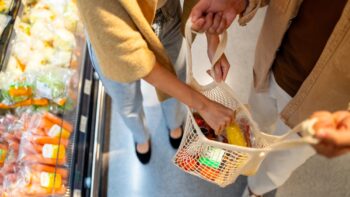Nourishing Golden Years: Senior Citizens and Food Assistance
As we age, our dietary needs and physical abilities change, making access to proper nutrition a crucial aspect of senior citizens’ well-being. Thankfully, various food assistance programs and services cater specifically to seniors, ensuring they have access to nutritious meals and the support they need to maintain their independence and health.
In this article, we will explore food assistance programs for seniors, offer tips on senior-specific nutrition, and discuss helpful services related to grocery shopping and transportation.
Food Assistance Programs for Seniors
- SNAP for Seniors: The Supplemental Nutrition Assistance Program (SNAP) is a federal initiative that provides eligible seniors with funds to purchase food. It’s a valuable resource for those with limited financial means, as it allows them to choose the foods that best suit their dietary needs and preferences.
- Meals on Wheels: Meals on Wheels is a community-based program that delivers nutritious meals directly to the homes of seniors who have difficulty leaving their homes. These meals are not only a source of sustenance but also a way to combat social isolation, as friendly volunteers often provide the deliveries.
- Senior Farmers Market Nutrition Program: This program helps seniors gain access to fresh fruits, vegetables, and herbs from local farmers markets. It encourages healthy eating habits and supports local agriculture.
- Commodity Supplemental Food Program (CSFP): CSFP offers a monthly box of nutritious food items to low-income seniors, providing staples like canned fruits, vegetables, dairy, and grains.
Help with Grocery Shopping and Transportation
- Grocery Delivery Services: Many seniors find it challenging to navigate crowded stores or carry heavy bags. Grocery delivery services, available through various online platforms, can bring groceries directly to their doorstep. Some grocery stores also offer telephone or online ordering with curbside pickup options. Consider apps like Instacart, DoorDash, Amazon and others.
- Community Transportation Services: Senior centers, nonprofits, and local government agencies often provide transportation services for seniors who cannot drive or have limited mobility. These services can help seniors reach grocery stores, medical appointments, and social activities.
Senior-Specific Nutrition Tips
- Balanced Diet: A balanced diet and access to nutritious foods is essential for seniors. Encourage them to include a variety of foods in their meals, with an emphasis on fruits, vegetables, lean proteins, and whole grains. Reducing salt and sugar intake is also advisable.
- Hydration: Staying hydrated becomes even more critical as we age. Seniors should aim to drink enough water throughout the day, and they can also obtain fluids from herbal teas, milk, and fruits like watermelon and cucumber.
- Calcium and Vitamin D: Seniors need to maintain bone health, so calcium and vitamin D-rich foods like dairy products, leafy greens, and fortified cereals are essential.
- Protein: Adequate protein intake is necessary to preserve muscle mass and strength. Lean meats, fish, beans, and dairy products are good sources.
- Small, Frequent Meals: Seniors may find it easier to consume smaller, more frequent meals rather than three large ones. This can help prevent overeating and ensure they get the nutrients they need.
Conclusion
Food assistance programs, grocery shopping services, and senior-specific nutrition tips are invaluable resources for our elderly loved ones. These services not only address nutritional needs but also promote independence, social interaction, and overall well-being.
If you or a senior you know could benefit from these resources, don’t hesitate to explore the available options in your community. Nourishing our seniors is a responsibility we all share, and with the right support, we can ensure that their golden years are filled with health and happiness.



